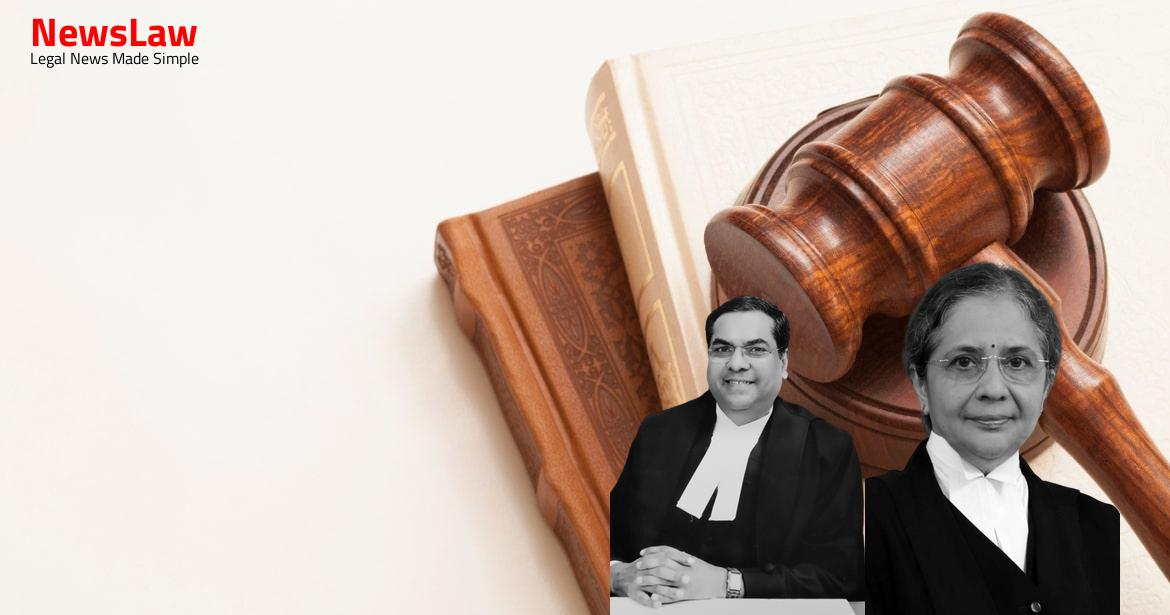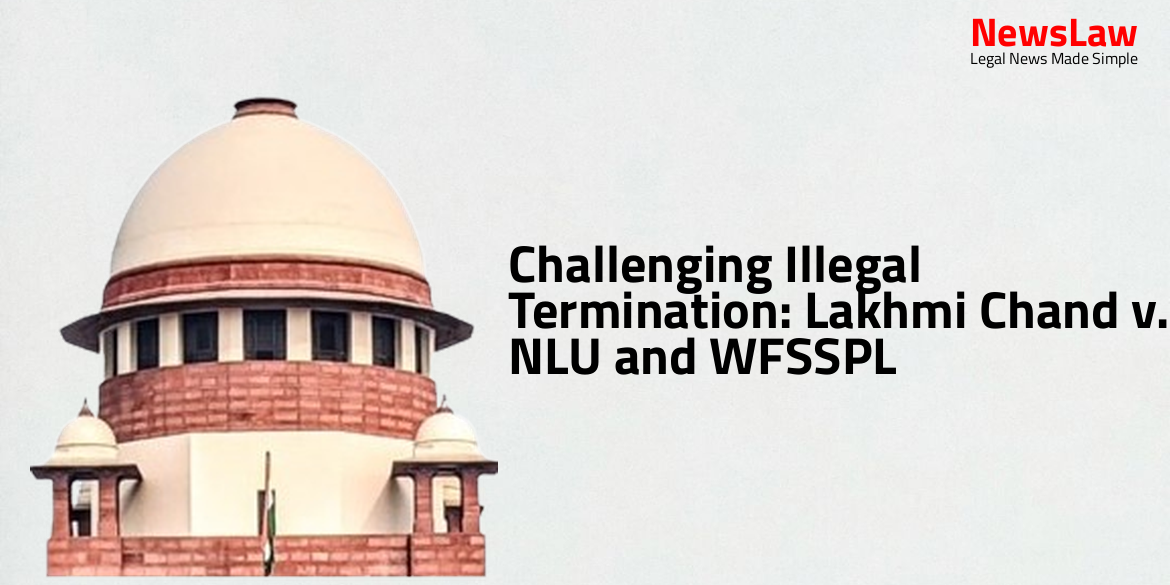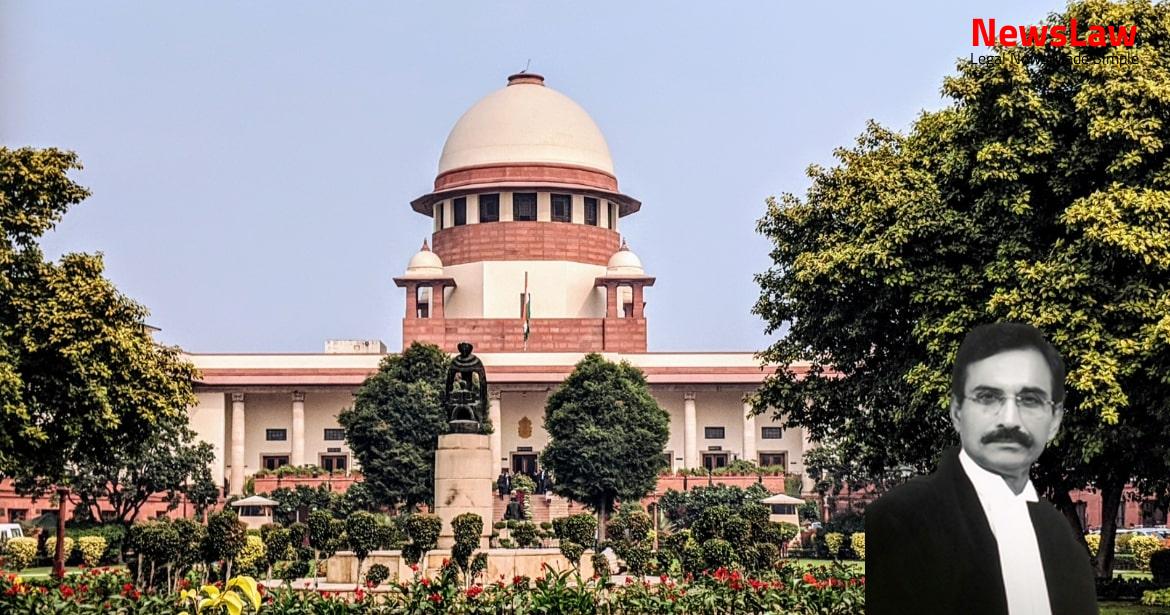In a recent legal case concerning insurance policy lapse and non-disclosure, the court emphasized the importance of good faith in insurance contracts. The case delved into the strict interpretation of policy terms and the need for full disclosure by the insured party. The court’s legal analysis highlighted the fundamental principles of insurance law and the consequences of failing to act in good faith. Stay informed about the court’s decision and the implications for insurance contract disputes.
Facts
- District Forum allowed respondent’s claim based on the Ready reckoner issued by the Corporation.
- Appellant-Corporation appealed to State Commission against District Forum’s decision.
- State Commission overturned District Forum’s decision.
- Respondent filed Revision Petition before NCDRC challenging State Commission’s decision.
- Complainant’s husband met with an accident and passed away on 21.03.2012.
- NCDRC allowed respondent’s Revision Petition and set aside State Commission’s order.
- Appellant paid Rs. 3,75,000 to the complainant but did not pay additional Rs. 3,75,000 towards Accident claim benefit.
- Appeal filed against NCDRC’s judgment setting aside State Commission’s order.
Also Read: Land Auction Dispute Resolution
Arguments
- The appellant-Corporation argued that the Accident claim benefit was only payable if the policy was active at the time of the accident.
- The policy had lapsed in October 2011, and an attempt to pay the premium was made on 09.03.2012, three days after the accident.
- The appellant argued that since the policy had lapsed, the complainant was not entitled to the Accident claim benefit.
- The respondent-complainant’s counsel highlighted that the terms and conditions of the policy were not communicated effectively to the insured.
- The respondent’s counsel referred to previous judgments emphasizing the requirement of good faith on the part of the insured in insurance contracts.
- The husband of the complainant made payment of premium on 09.03.2012 along with late fee charges, reviving the policy before his death.
- Relevant conditions of the policy need to be reviewed in order to understand the arguments presented.
- Counsel cited LIC vs Jaya Chandel to support the claim that issuance of the renewal premium receipt on 09.03.2012 indicated policy revival despite previous lapse.
Also Read: Analysis of Bail Conditions in Criminal Appeal No. INSC 48/2024
Analysis
- If the life assured sustains bodily injury from an accident caused by outward, violent, and visible means, resulting in death within 180 days, the policy provides coverage.
- Revival of a Discontinued Policy requires approval from the Corporation and communication to the proposer/Life Assured.
- Non-forfeiture Regulations state that if at least 3 full years of premiums have been paid, the policy will not be void but will become a Paid-up Value, payable in case of death/Maturity.
- Accident Benefit, if opted for, provides additional sum assured in case of permanent disability or death due to an accident.
- Revival of Discontinued Policies is allowed within five years of lapse upon submission of proof of continued insurability and payment of all arrears of premium with interest.
- The accident benefit claim was not payable to the respondent as the policy was lapsed at the time of the accident.
- The failure to disclose the accident to the insurance corporation showed a lack of good faith and intention to deceive.
- The policy was revived after the accident without disclosing the accident itself, which was a crucial material fact.
- The requirement of Uberrima fides, i.e., good faith, in an insurance contract was not met by the respondent in this case.
- The claim for extra Accident benefit was rightly rejected as the policy was not in force on the date of the accident.
- The husband of the complainant had taken the policy, let it lapse, met with an accident, and then the premium was paid without disclosing the accident.
- The lack of disclosure about the accident at the time of premium payment further indicated an attempt to benefit unfairly from the policy.
- An insurance contract is a commercial transaction and must be strictly construed like any other contract.
- The terms of an insurance policy cannot be rewritten while interpreting the policy.
- The insured can only claim what is covered by the insurance policy.
- Good faith is required from the insured in a contract of insurance.
- The four essentials of a contract of insurance are the definition of the risk, the duration of the risk, the premium, and the amount of insurance.
- The insurance policy terms have to be strictly construed to determine the extent of the insurer’s liability.
- The court should not venture into extra liberalism or rewrite the contract while interpreting the terms of the policy.
- The NCDRC’s decision to set aside the order of the Commission and reinstate the order of the District Forum was deemed highly erroneous.
- The Court allowed the appeal and overturned the NCDRC’s order.
Also Read: Conviction Upheld for Murder and Concealment of Body
Decision
- The respondent’s claim for Accident benefit has been rejected.
- Any pending applications have been disposed of.
Case Title: LIFE INSURANCE CORPORATION OF INDIA Vs. SUNITA (2021 INSC 704)
Case Number: C.A. No.-006537-006537 / 2021



